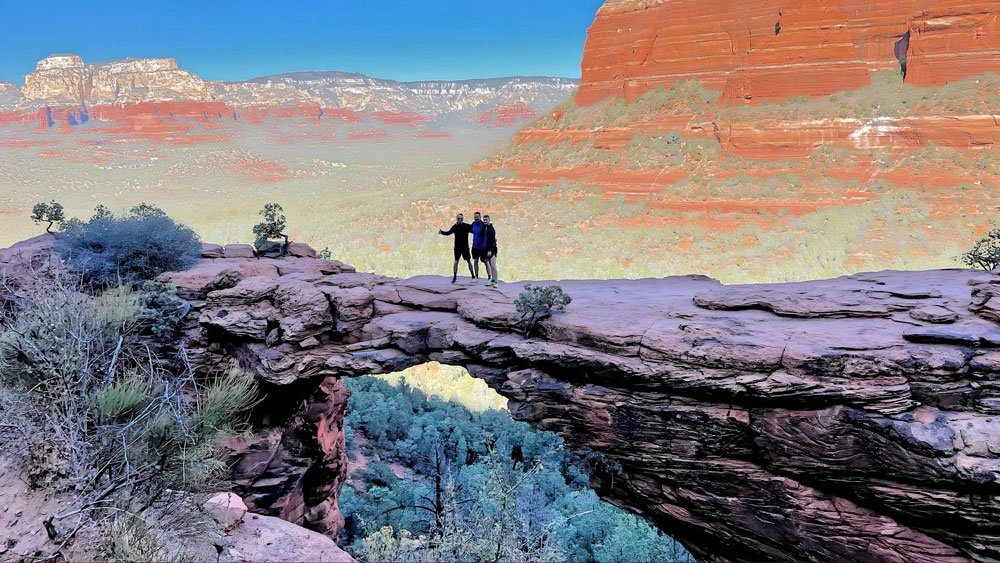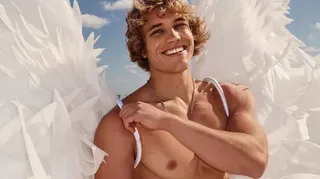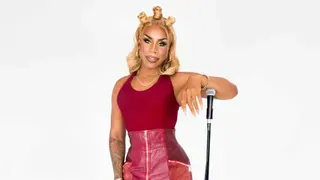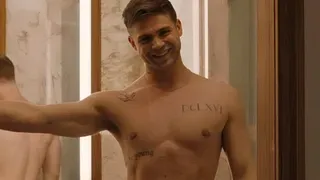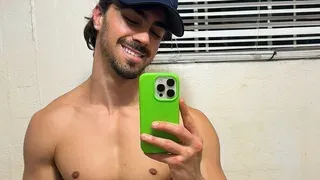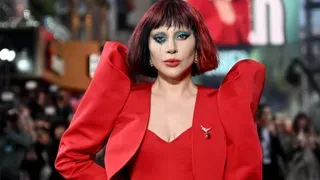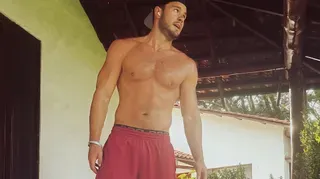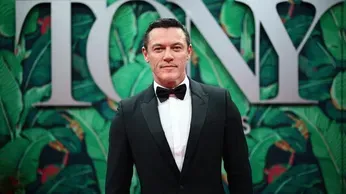
October 28, 2024
Luke Evans' Painful Coming Out Journey Revealed in Upcoming Memoir
READ TIME: 11 MIN.
When Luke Evans was approaching 30, he felt his career in show business had ended. Though he had appeared in a string of hits and flops over the previous decade ("La Cava," "Taboo," "Rent," "Miss Saigon" and "Avenue Q"), he didn't see his future in musical theater and he gave serious thought to leaving show business for something more secure. He felt that show business professionals saw him as a hoofer, not an actor. This even included his agent, it turned out, who told Evans he was overreaching when he asked the agent to get him an audition for a revival of British playwright's Peter Gill's 1976 queer drama "Small Change" in the West End. Evans promptly got another agent and got the role. He next found an American agent, and within weeks he landed his first Hollywood role-- the part of Apollo in the remake of "Clash of the Titans."
A second role followed, then a third. During his first two years as a film star, he appeared in eight films, some big-budgeted ones ("Robin Hood," "The Three Musketeers," "Immortals") and some independent ones ("Sex & Drugs & Rock & Roll," "Tamara Drewe," "Blitz.") He smartly capitalized on his rugged good looks as he moved forward and casting agents saw him as part of a small group of actors (Tom Hardy, Joel Edgerton) ready-fit to be action heroes. "I played straight rugged masculine men," he tells The Guardian in a lengthy interview. I am queer, but I present in a masculine way. And thank God, in a way, because bloody hell, I wouldn't have had the career I've had if I presented any other way."
Evans was on his way to super-stardom, but there was one catch – Evans was gay. He publicly came out in The Advocate in 2002 while appearing in West End shows. But as his career began to advance, he became coy about his sexuality and was accused of living a lie on social media. That was torture for Evans, he tells The Guardian. He was worried that he would be exposed as gay, despite having already come out; and he didn't like the idea of not being up front about sex. And the nasty pushback he received from the queer community got under his skin.
"The first thing is they don't know who they're talking about," he said about the negative comments. "They don't know me. I didn't just live as a gay man, I sacrificed all of my childhood friends. I had to move out at 16. I had to navigate London, drugs, sex, with no one to fall back on apart from the new people I'd found in my life. There was never a point where I was ashamed. I had a plan from the age of 12 to escape because I wanted to be the person I am." He reddens in anger. "There was a lot of hate. I was being treated as if I'd turned my back on my identity and the community I was a strong part of."

Curiously, no one in Hollywood asked him about his sexuality. If they had, Evans would have told them the truth. And by 2014, Evans was ready to discuss being out. During the promotional tour of "Dracula Untold," he was asked by Women's Wear Daily if he was setting a new precedent as an openly gay action star. Evans replied: "It's good for people to look at me and think, this guy is doing his thing and enjoying what he's doing and successful at it and living his life." He waited for the fallout. "I thought it could shatter my casting credibility. But that was all in my head because the jobs kept coming." Then the coin flipped again, he says, back to old-school homophobia. "I was getting the roles over my straight counterparts. Some were very pissed off."
Now at the age of 45, Evans is publishing an autobiography, "Boy From the Valleys: my unexpected journey," (due out November 7), which offers his behind-the-scenes look at his career to date, which not only focuses how his macho image has made him "one of few out gay actors cast as straight leading men and action heroes" (The Guardian). "But what a punishing odyssey he has been on to get there. One that involves running away from home at 16, living the lie that he had always feared, being expelled from his church, and eventually coming out as gay twice – once in the UK when starting out in musical theatre, then years later in Hollywood as a superstar. His life would make a fabulous movie."
Evans story begins in some 45 years ago in Aberbargoed, a tiny town in south Wales with an unusually large Jehovah Witness population, when Evans was born the only child to Yvonne and David Evans, devout practitioners of that faith. He fondly recalls to The Guardian that the three of them were inseparable throughout his childhood and teen years. "My childhood was full of love, especially from my mam. Dad was the breadwinner." While David kept the family afloat as a bricklayer, Yvonne gave as much of herself to young Luke as she did to God. "Every morning, I'd climb into bed with them on my mam's side before I went to school."
But he especially hated the requirements of the Jehovah Witnesses that required he go door-knocking with his parents. "Knocking on a stranger's door, knowing that what we were about to say they didn't want to hear, was terrifying. I hated it. In the summer holidays, we knocked on doors even more than when I was at school. Three hours on a Wednesday, the whole day on Friday, then the weekend." He also was forced to publically declare his religion to his classmates, which led him to being bullied with terms like "Jovey" or "Bible-basher;" these turned to different taunts after he turned seven and his classmates began sensing gay vibes: "Bender" and "gay boy," which were often accompanied with floppy-wrist gestures. Luke had no idea what it meant, or why he was being picked on; but he figured it our soon enough.

"What hurt the most was being pushed away. Somebody not wanting to sit next to me in class. At break time, not having anyone to hang out with or being safe in a crowd or gang. I didn't have one. ... It's a terrible thing for a child to have to think, what's wrong with me? I felt like I was dirty, like I had a disease. I had to keep analysing what it was about me that was making them do this: was it my voice? Was it that I was slightly effeminate?"
By Secondary School, Evans realized he was gay and a new set of terrors. What if, he feared, he was to be door-knocking with his parents and they came across one of the bullies and they began to taunt him with homophobic terms? What could he say to his parents? "My mam and dad had no idea I was going through all of that. But when I was in a situation where this could be exposed to them, it terrified me."
What he did love was when he was giving a Bible reading at one of the two services he attended weekly. "After the talk, the elders would give advice on how to improve it. They'd say, 'Use more illustrations' or 'Pause for emphasis' or 'Use repetition'." In the early days, he loved that aspect of being a Jehovah's Witness, just as he loved dressing up in a suit and the sense of belonging. But none of that compensated for the downsides."
Evans knew he was gay at 13, but relented to dedicate himself to his religion when baptized. "I thought maybe by doing that, the rest would disappear. I was so confused, and I had no one to talk to. The only thing I could talk about to people I knew was the religion. It consumed our conversation. I thought, well, focus on something else and hope the other thing goes away... I thought maybe by doing that, the rest would disappear. I was so confused, and I had no one to talk to. The only thing I could talk about to people I knew was the religion. It consumed our conversation. I thought, well, focus on something else and hope the other thing goes away."
What terrified him the most was the idea of losing contact with his parents if is homosexuality was exposed and brought to church elders. If he admitted he was, he would be expelled from the church and not be allowed contact with anyone practicing the religion. "The only thing that mattered to me was my mam and dad. I didn't really care about the dying bit once I realised who I was and what I needed to do to be who I was. To be happy, there was only one route I could take, and my only worry was that I'd lose Mam and Dad in the small period I had before Armageddon came. I had to make this decision: either you keep lying and live this life that is making you very unhappy or you take the risk and hope they don't cut you off and pretend that you are dead." When his father found his porn stash, he burnt it without telling Evans. His mother told him the truth, but added she didn't want to know anything about his sexuality because the implications were too terrible.
